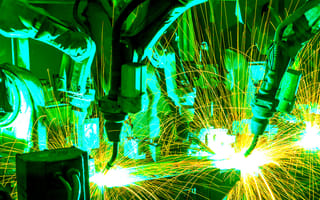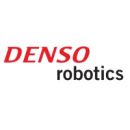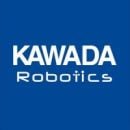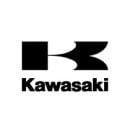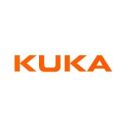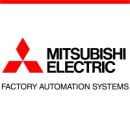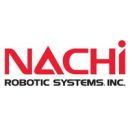The industrial robot continues to play an integral role in industries like manufacturing, reaching around 3.5 million operational units and resulting in a global market worth over $52 billion in 2023. Factories, power plants and other industrial workplaces now depend on robotics companies to deliver top-notch products that automate processes, ramp up production and increase safety.
Top Industrial Robot Companies
- ABB
- Comau
- Denso Robotics
- Fanuc
- Kuka
- Mitsubishi
- Omron
- Stäubli
- Universal
- Yaskawa
But not all robotics companies are the same. Besides ensuring the quality of their robots, businesses need to determine which industrial robots can perform the tasks relevant to their sector and workplace. Below are some of the companies designing industrial robots that bring automation and innovation to a range of jobs.
Industrial Robot Companies to Know
Location: Zurich, Switzerland
From manufacturing to logistics, ABB’s wide range of industrial robots are able to perform tasks like arc and spot welding, material-handling functions like sorting and packaging, and quality control. With the launch of its delta industrial robot, ABB boasts one of the fastest industrial robots for picking and packing lightweight objects in the food and beverage, pharmaceutical and consumer goods industries.
Location: Grugliasco, Italy
Comau currently has more than 40 industrial robots on the market with a variety of capabilities ranging from product assembly and material handling to machining and arc welding. Comau’s industrial robots, which work in automotive, logistics and other industries, are able to handle payloads ranging from 3 to 650 kilograms with reduced cycle times for completing programmed tasks of more than 25 percent.
Location: Long Beach, California
Today, more than 143,000 Denso Robotics’ industrial robots are being used by companies all across the world. Applications range from ultrasonic and laser welding to surface finishing in industries like aerospace, semiconductors and pharmaceuticals. Denso itself employs 27,000 of its own industrial robots across its manufacturing facilities. The company’s suite of four-axis robot arms are capable of handling payloads ranging from 3 to 20 kg, and its five- and six-axis robots can handle payloads upwards of 40 kg.
Location: Suwon, South Korea
Doosan Robotics’ industrial robots are able to handle and stack multiple heavy objects in busy manufacturing and production facilities. The company’s robots are also capable of loading and unloading CNC machines, like lathes and milling machines. They can also fasten screws, nuts and bolts to assemble items like thermostats, and can even take on complex tasks requiring human-like precision, like applying glue for car door junctions and heat exchangers.
Location: Suwa, Japan
Epson develops and manufactures its own line of industrial SCARA and six-axis robots. Epson’s more than 300 models of SCARA robots, the first of which were designed 35 years to assemble Seiko watches, range in reach from 175 millimeters to 1000 millimeters. Today, Epson’s G3-Series SCARA robots are being used by Taylor Guitars, helping the guitar manufacturer increase production of their acoustic pickups by 500 a day. The company’s six-axis industrial robots have a “folding arm” design which improves motion and increases efficiency.
Location: Yamanashi, Japan
Fanuc specializes in industrial robots for manufacturing. The company’s SCARA robots are capable of working with payloads between 3 kg and 20 kg, while assembling products, performing picking-and-placing actions, quality control and packaging at high speeds in automotive, medical device and other industries. Fanuc’s industrial painting and coating robots have been used by the world’s top 15 automakers.
Location: Munich, Germany
From feeding and unloading press brakes to electronics assembly, Franka Emika’s industrial robots provide automation solutions for production and manufacturing. With seven axes and more than 100 sensors, the company’s new industrial robot, Franka Production 3, provides “human arm-like dexterity” to assembly operations. Workers can also learn how to operate the robot with no coding knowledge, making the Franka Production 3 user-friendly.
Location: Seongnam, South Korea
Industrial robots developed by Hanwha Corporation/Momentum work in diverse sectors, ranging from automotive to pharmaceutical. In the automotive industry, the company’s robots assist in parts manufacturing, assembly and quality control. In the pharmaceutical industry, as well as food and cosmetics, Hanwha’s robots are able to pack, load and perform pick-and-place actions.
Location: Tokyo, Japan
Nextage, the dual-arm industrial robot of Kawada Robotics Groups, is capable of working alongside humans in a variety of manufacturing settings. It has the ability to recognize and respond to its environment thanks to its built-in image recognition system, while 15 axes and an electromagnetic brake system on its shoulders and elbows prevent falls. When utilizing both its arms, Nextage has a maximum payload capacity of 6 kg.
Location: Tokyo, Japan
Kawasaki doesn’t just make fast motorcycles and jet skis, it also has a thriving industrial robot division. Their robot arms can handle payloads up to 1,500 kg and are used in a diverse range of areas from sealant and adhesive application to silicon wafer transfer in the semiconductor industry. Rehkemper & Son, a building-component manufacturer, has used Kawasaki’s industrial robots to help assemble walls used in prefabricated homes.
Location: Boisbriand, Canada
Kinova Robotics’ industrial robots are helping manufacturers automate tasks like assembly and dispensing. With the release of the Link 6, Kinova Robotics has created the first industrial collaborative robot to come out of Canada. Link 6, which specializes in applications like pick and place, part assembly and machine tending, is able to reduce cycle times with its longer reach and faster movements.
Location: Augsburg, Germany
Industrial robots from KUKA Robotics work across a diverse range of industries and production and manufacturing environments. They’re able to assist in ultra-clean room settings — areas with low concentrations of particulates in the air — for tasks like semiconductor fabrication. KUKA’s industrial robots are also able to assist in nuclear decommissioning and other radioactive environments where they take on dangerous tasks like handling and sorting waste.
Location: Montreal, Canada
Mecademic specializes in ultra-small industrial robots capable of high-speed pick and place and lab automation with a small footprint. Its six-axis industrial robot arm, Meca500, has a reach of 330 mm and maximum payload capacity of 1 kg. With sensors and wireless connectivity, Meca500 is also capable of gathering data, the analysis of which can lead to improved efficiency through more informed decision-making.
Location: Vernon Hills, Illinois
From apple and air freshener packaging to watch assembly, Mitsubishi’s industrial robots work in a variety of settings, keeping production costs low in sectors like the automotive industry and decreasing production footprints in other areas like solar assembly. The company’s vertically articulated industrial robots are able to handle assembly, machine-tending and tray-handling applications. Mitsubishi’s SCARA industrial robots are also suited for assembly applications, as well as pick and place and case packing.
Location: Tokyo, Japan
For arc welding applications, Nachi Robotics Systems’ industrial robots feature sensing capabilities like touch, seam tracking and laser search, which increases the ways they can be used and allows them to work on complex components. The company’s robots are also capable of working in other applications like material handling, machine tending and dispensing, where average dispensing speeds range from 500 mm to 1000 mm per second.
Location: Kyoto, Japan
The industrial robot line from OMRON Group features both four-axis SCARA robots and six-axis articulated robots, as well as parallel robots for pick-and-place applications. OMRON’s SCARA robots are capable of assembly, precision machining, material handling and adhesive application. The company’s Viper-series robots are also well-suited for machining, assembly and material handling in a variety of industries.
Location: Pfäffikon, Switzerland
Stäubli’s industrial robots combine small footprints with increased speed and precision. The company’s SCARA robots specialize in high-speed assembly, packaging and palletization, while their articulated robots offer increased dexterity and flexibility to assist in machine tending, washing, deburring and polishing applications. Stäubli’s industrial robots are also capable of working in aseptic environments for pharmaceutical operations and humid settings for food and beverage applications.
Location: Princeton, New Jersey
ST Robotics has worked with leading companies like Pfizer, Sony, HP, as well as institutions like NASA. ST Robotics’ R12 industrial robot is a five- or six-axis articulated robot arm that has a reach of 500 mm and a maximum payload capacity of 1 kg, which the company bills as ideal for benchtop automation of testing and sample handling. The company’s R17 model has a reach of 750 mm and maximum payload capacity of 2 kg, which helps automate product testing, welding, spraying and other applications where access is limited or difficult.
Location: Odense, Denmark
Universal Robots has sold over 75,000 collaborative industrial robots across a range of industries from automotive to food and beverage. The company’s industrial robots have been used by automotive companies like Continental, where changeover time — moving components from one station to the next — was reduced by 50 percent; and by Ford, where Universal’s robots work on a Romanian assembly line greasing camshafts and filling engines with oil.
Location: Kitakyushu, Japan
In 1977, Yaskawa introduced the first all-electric industrial robot in Japan, shipping close to 500,000 in the more than 40 years since. Working across logistics, automotive, and food and beverage industries, Yaskawa robots are used in applications like welding, assembly and painting. The company is also working in the electric vehicle industry by helping to produce high-capacity batteries and in the biomedical industry testing bacteria and preparing drugs.
Location: Louisville, Colorado
AMP works in the recycling industry to design and create robotics. It trains AI to recognize specific objects by color, shape, logo, material and texture as they go along the conveyor belt. The company aims to digitize each object in its clients’ facilities.

